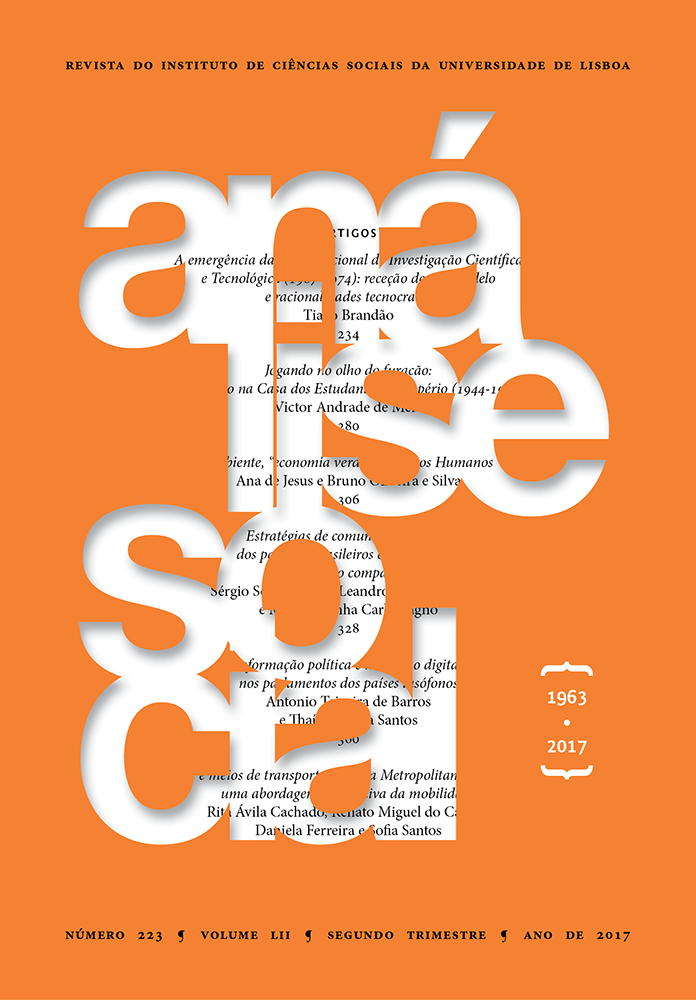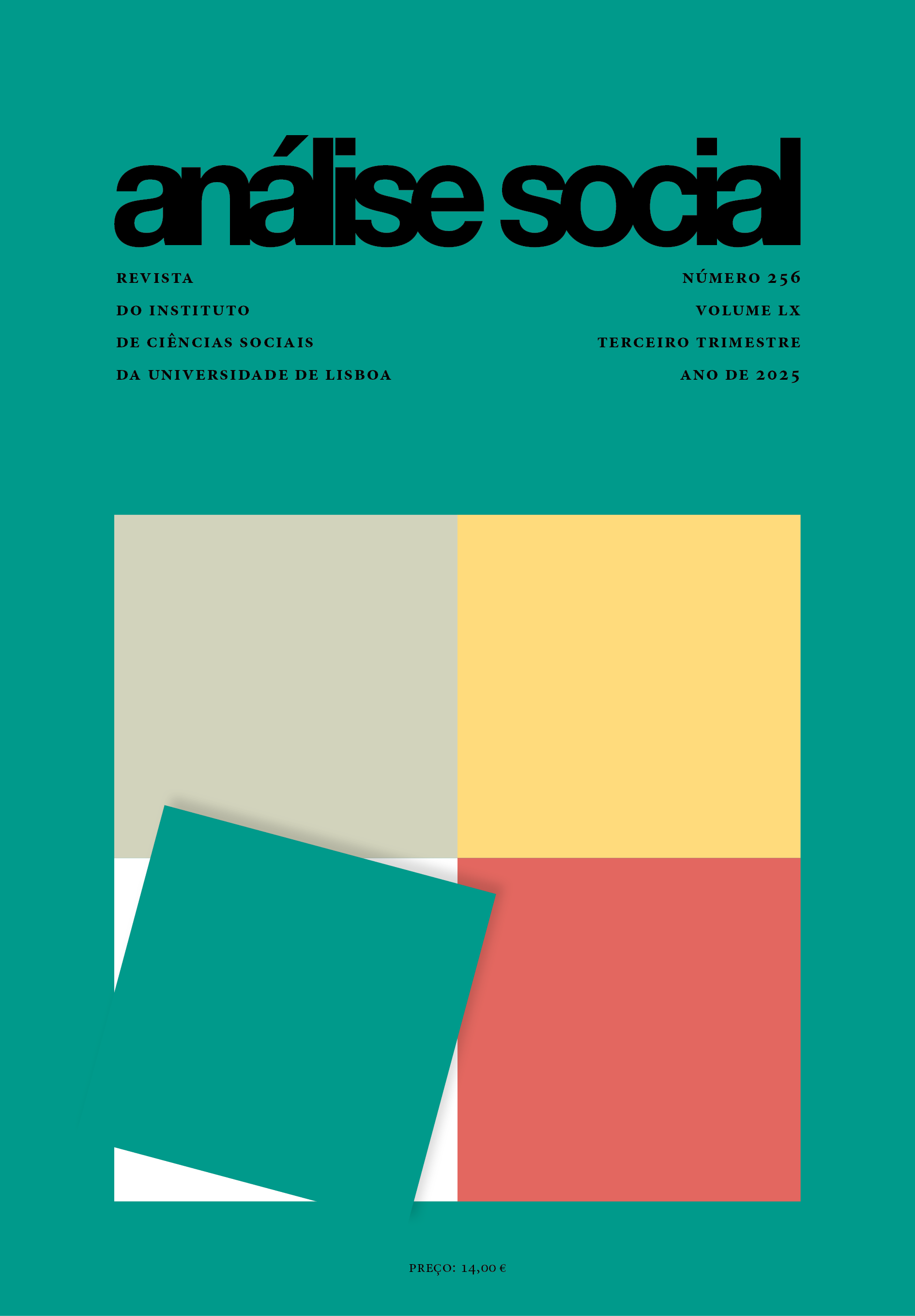Strategies of digital communication by Brazilian and Portuguese political parties: a comparative study
DOI:
https://doi.org/10.31447/AS00032573.2017223.04Keywords:
political parties online, digital technologies, internet and politics, strategies of political communication onlineAbstract
This article makes a comparative analysis of digital communication strategies by Brazilian and Portuguese parties. We seek to verify the plausibility for these political party systems of three general hypotheses proposed by the international literature on the subject: the hypothesis of “normalization,” the hypothesis of correspondence between characteristics of party organizations and interaction strategies on the Internet, and the hypothesis of the emergence of more interactive and “citizen-initiated” models of party communication. To do so we deepen the methodological approach suggested by Catarina Silva in her studies of the Portuguese parties in the non-electoral period.
Downloads
Download data is not yet available.
Downloads
Published
2017-06-30
How to Cite
Soares Braga, S., Caetano Rocha, L., & Cunha Carlomagno, M. (2017). Strategies of digital communication by Brazilian and Portuguese political parties: a comparative study. Análise Social, 52(223), 328–359. https://doi.org/10.31447/AS00032573.2017223.04
Issue
Section
Research Article



